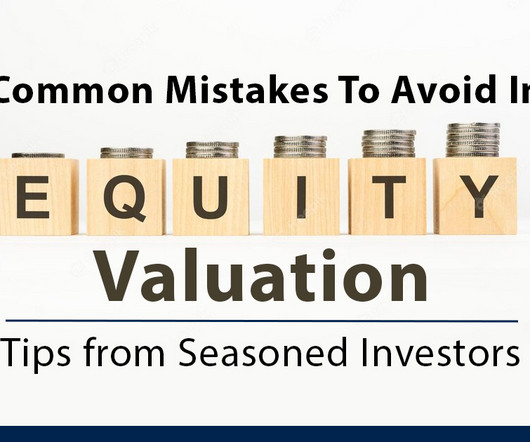Common Mistakes to Avoid in Equity Valuation: Tips from Seasoned Investors
RNC
JULY 24, 2023
Valuing equity plays a role in the world as it determines the true value of a company’s shares. Both valuation firms and investors rely on equity valuation to make informed decisions. Valuation firms are aware that technical analysis can be useful for short-term predictions.














Let's personalize your content